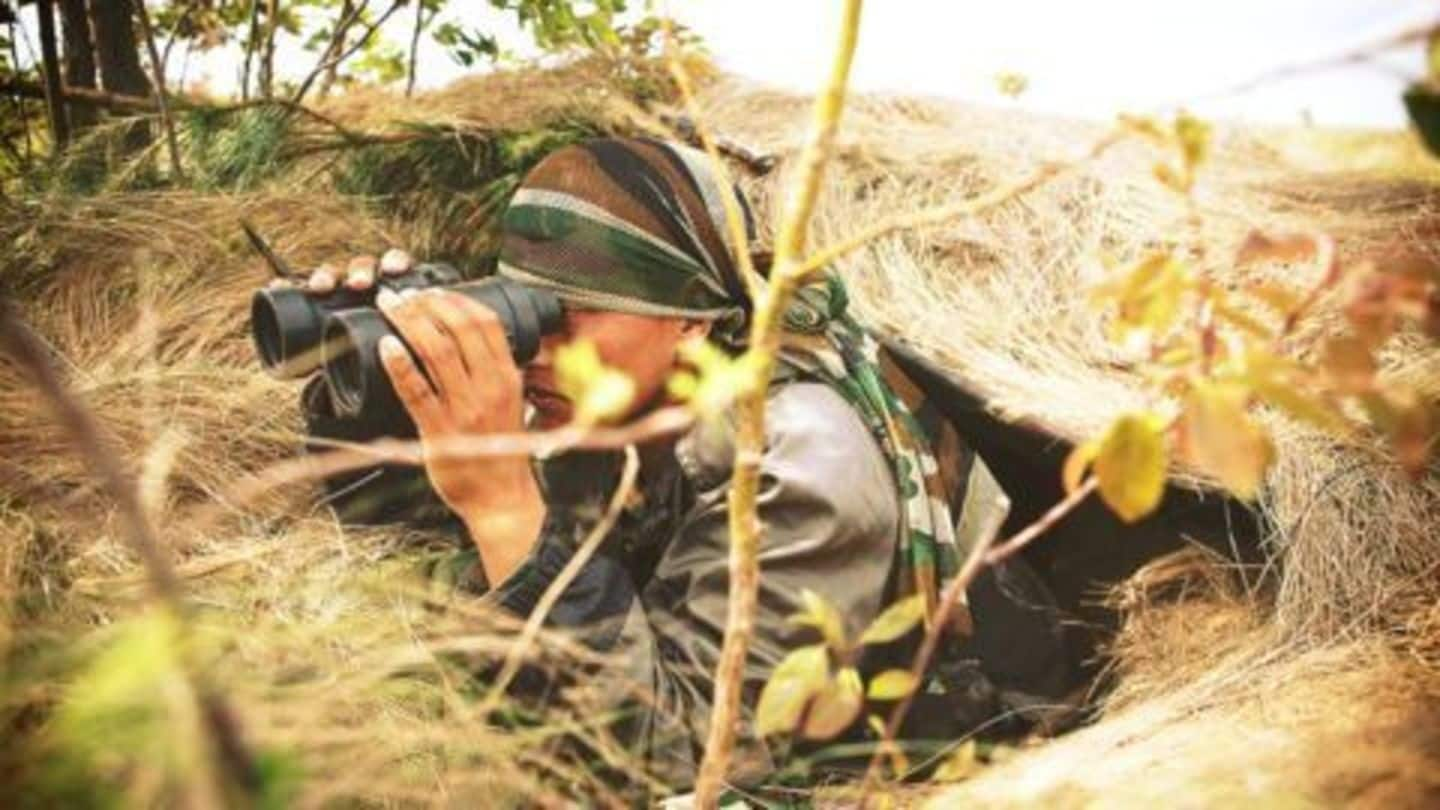
Pakistan's attacks and India's counterstrikes create vulnerable situation
What's the story
Rising tensions between India and Pakistan led to fears the two countries could be heading toward a fifth Indo-Pak war. Pakistan's recent attacks on India, ceasefire violations targeting Indian posts, and terror attacks by Pakistani infiltrators created a vulnerable situation. Capturing of an Indian soldier and killing of eight (as claimed by Pakistan) after India's surgical strikes across the LoC only worsened the situation.
Introduction
Four Indo-Pak wars fought
After the partition of British India in 1947 and creation of India and Pakistan, both the nations have been involved in four wars. The separation, as expected by leading politicians, should have created peaceful relations. But, India and Pakistan claimed Kashmir whose ruler signed the 'Instrument of Accession' and joined India. Three Indo-Pak wars in the past 69 years were fought over Kashmir.
Data
Ind v Pak: Nuclear arms race
In 1974, India conducted Pokhran-I nuclear test dragging Pakistan into the race. Pakistan carried Kirana-I test in the 1980s. In 1988, India held Pokhran-II (Operation Shakti) at Pokhran Test Range inviting international sanctions. In May 1998, Pakistan conducted Chagai-I and Chagai-II nuclear tests.
1947-49
The First Kashmir War
The first Indo-Pak war post-partition arose in October 1947. The Pakistan-backed strike on Kashmir prompted Maharaj Hari Singh to take help from India and sign an agreement ceding his kingdom to India, leading to war. The undeclared war came to an end in January 1949 after the United Nations brokered a ceasefire. After the war, India gained control over two-thirds of Kashmir.
1965
India's response to Pakistan's Operation Gibraltar
Kashmir was declared an integral part of the Indian Union in 1957. In August 1965, Pakistan launched Operation Gibraltar to infiltrate Jammu & Kashmir and start a rebellion against the Indian rule. India responded by invading Pakistan and pushing its border to Lahore, conquering 3900 sqm. In September, the 17-day war ended after both the countries agreed to a ceasefire sponsored by the UN.
1971
A historic victory for the Indian Army
In 1971, a civil war erupted in Pakistan; East Pakistan fought for its liberation. Pakistan's Operation Searchlight forced 10 million East Pakistanis to seek refuge in India. India intervened after Pakistan attacked 11 airbases triggering the third war; it attacked Pakistan and occupied the eastern part, which later became Bangladesh. The UN brokered a ceasefire after Pakistan's defeat, ending the 13-day war in mid-December.
1999
Pakistan's Operation Badr triggered the fourth war
Pakistani army groups entered the LoC's Indian side to sever Ladakh-Kashmir link and make the Indian Army retreat from Siachen. Pakistan launched 'Operation Badr' to infiltrate and force India to renegotiate Kashmir's settlement. After reports of intrusion in Kargil and other areas, India responded with "Operation Vijay" and deployed more army troops to take control of infiltrated areas; the Indian Air Force launched airstrikes.
Information
"Operation Vijay" successful
India released documents indicating Pakistani Army troops' infiltration and not insurgents'; the then-US President Bill Clinton asked Pakistani PM Nawaz Sharif to withdraw. On 26 July'99, the Kargil War ended officially after India announced complete eviction of Pakistani intruders.